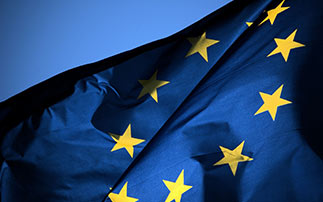Once funding has been secured, the success of a European project depends above all on rigorous management that meets the funder’s expectations. The implementation phase is crucial: it determines not only the quality of the deliverables, but also the sustainability of the funding and the reputation of the beneficiary organisation.
Here are the best practices and key rules to follow to ensure the effective management of your European Union co-funded project.
Structure operational governance
From the outset of the project, it is essential to establish clear governance, with:
-
An identified project manager,
-
Well-defined internal approval processes,
-
Regular meetings between stakeholders,
-
A dashboard for tracking tasks and deliverables.
This organisation facilitates decision-making, manages unforeseen events and ensures the smooth flow of information.
Controlling the schedule and deliverables
Meeting deadlines is an important evaluation criterion. It is recommended to:
-
Build a detailed schedule (Gantt or equivalent),
-
Identify dependencies between tasks,
-
Allow for safety margins,
-
Document each deliverable within the allotted time frame.
In the event of a delay, it is crucial to anticipate and notify the managing authority or agency concerned.
Manage the budget rigorously
European projects are subject to strict financial rules. It is necessary to:
-
Track expenditure analytically (by item, activity, period),
-
Comply with the budget lines approved in the agreement,
-
Justify each item of expenditure with the required supporting documents,
-
Avoid reallocations without prior authorisation.
Robust internal controls help to avoid reimbursement refusals and financial corrections.
Compile a complete file of evidence
Traceability is a fundamental principle. It is recommended that you keep the following throughout the project:
-
Signed timesheets,
-
Quotations, invoices, purchase orders,
-
Proof of completion of activities (photos, attendance lists, reports),
-
Correspondence with partners and funders.
A well-maintained file facilitates audits and secures the payment of funding instalments.
Monitor and evaluate indicators
Funders expect regular measurement of results. It is therefore important to:
-
Update the indicators specified in the application file,
-
Check that they have been achieved at each key stage,
-
Justify any discrepancies with supporting arguments,
-
Include these elements in the interim and final reports.
Qualitative monitoring reinforces the credibility of the project and highlights the real impact of the actions carried out.
Anticipate communication requirements
Even during the operational phase, communication requirements remain in force:
-
Use of official logos,
-
Mention of EU co-financing on media,
-
Regular dissemination of project progress,
-
Updating of the website or page dedicated to the project.
These elements must be included in the planning from the outset.
Prepare for audits and checks
A European project may be subject to a technical or financial audit during or after its implementation. To deal with this calmly, it is advisable to:
- Document each expense and activity,
-
Keep evidence for the legal period,
-
Appoint a ‘compliance’ officer within the project team,
-
Carry out regular self-checks.
Compliant management limits the risk of financial penalties.
In conclusion
Managing a European project cannot be improvised. It relies on continuous anticipation, structured organisation and administrative rigour at all times. These best practices ensure that the project runs smoothly and guarantee compliance with funders.
Key points to remember:
-
Establish clear governance from the outset.
-
Keep track of deadlines, deliverables and cash flow.
-
Rigorously justify every expense.
-
Monitor indicators and communication requirements.
-
Prepare for audits with complete files.
Welcomeurope supports beneficiaries throughout the management of their European projects, providing tailored tools, training and operational support.




